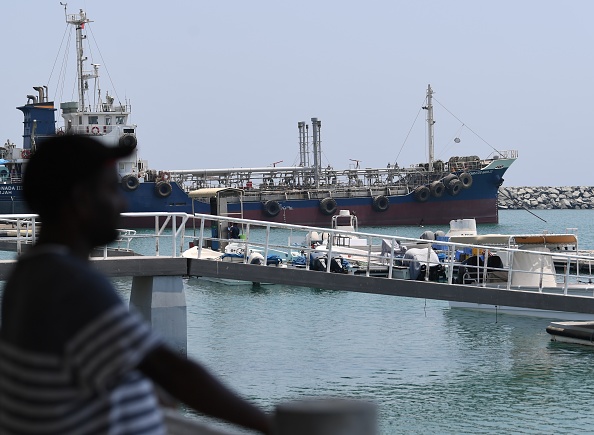Don’t underestimate the importance of the Strait of Hormuz to the global economy

If last week’s obstruction of a British tanker in the Strait of Hormuz did not illustrate the dangers our seafarers face, we were furnished with further proof on Friday, when Iran seized the Stena Impero in international waters.
Only the timely intervention of a Royal Navy frigate had secured the safe passage of the British Heritage, but it was too late for the Swedish-owned and British-flagged Stena Impero, which was taken swiftly into Iranian waters after its seizure.
It is only the latest development in a series of alarming events in the Gulf. Tensions between the US and Iran – recently reflected in the downing of an Iranian drone by US jammer technology – are rising.
Iran has made it plain that it will not ignore the seizure off Gibraltar of Grace I, which was acting in breach of EU sanctions. Yet it seems that even during a volatile period, we take for granted that our ships will move smoothly around the globe.
This is by no means a given, however, and the stakes are high.
The Strait of Hormuz is a choke point through which one fifth of the world’s oil moves. Some 30 per cent of global liquefied natural gas trade, as well as five per cent and 13 per cent of UK oil and gas respectively, pass through it. It is no exaggeration to say that securing the Strait of Hormuz is an imperative for the UK economy, and indeed for the wider world.
Yet without domestic support and international collaboration, this could become increasingly difficult. The Strait is just 21 miles wide, which means that any ship passing through must enter Iranian territorial waters on the way in, and Omani waters on the way out.
The accidental interruption of the passage of ships through the Strait is already likely, but in these highly charged circumstances, there is every possibility that incidents similar to the Iranian seizure of the Stena Impero will happen again.
There is no doubt that the actions of Iran, as a signatory of the UN Convention on the Law of the Sea, were unacceptable, as well as deliberate. And as others have pointed out, Iran has long threatened to close the Strait of Hormuz.
Most sinister and concerning was Iran’s foreign ministry spokesman’s comments to IRNA news in the wake of the British seizure of the Iranian oil tanker Grace I. “This is a dangerous game and has consequences,” he said.
The good news is that, through international collaboration, this threat can be neutralised. The “coalition of allies” plan proposed by the US is one way to do this, and we fully support it. Freedom of navigation, and therefore the safe passage of goods, must be protected.
This freedom is a fundamental principle of customary international law, which states that “ships flying the flag of any sovereign state shall not suffer interference from other states”. Any violation of this principle puts at risk the entire system of global seaborne trade and the interconnectedness of nations on which we rely for our economic stability.
We are fortunate: the Royal Navy’s efforts in the region have been outstanding. Equally, the Combined Maritime Forces, a partnership of 33 nations, have been effective in keeping it secure.
But as additional Royal Navy ships head for the Arabian Gulf, we should nevertheless remind ourselves that an international solution aimed at the swift de-escalation of tensions should be our ultimate goal.
For shipping to maintain this security, we must reach an international consensus on the legal way forward. We must come to an agreement that guarantees the safety of ships passing through the Strait, in the same way that international ship owners and seafarers feel safe in the Dover Straits, much closer to home.
And we must not forget its global economic importance.
Main image credit: Getty